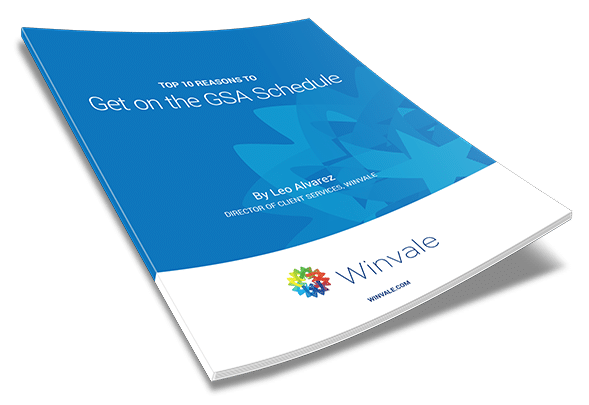Winvale Blog
The latest insights for government contracting success, GSA Schedule assistance, & IT Manufacturer support.

By:
John Abel
April 5th, 2023
If you’ve managed to find yourself reading Winvale’s regular blog series, odds are you’ve got an idea of what the General Services Administration (GSA) is by this point (if not, that’s okay, we have some articles on that too), but you may be wondering what the differences between a Multiple Award Schedule (MAS) and Veterans Affairs (VA) Federal Supply Schedule (FSS) contract are. They’re both federal government contracting vehicles administered by GSA as a whole but they vary in many ways in terms of structure, scope, and usage. This article will provide some answers to your most burning questions.

GSA Schedule | Resources and Insight
By:
Julien Cannon
March 31st, 2023
GSA Schedules offer the opportunity for contractors to provide their products and services to federal agencies at pre-negotiated rates, making it easier for the government to acquire what it needs and for commercial companies to secure reliable contracts. However, securing a GSA Schedule is not simply a matter of filling out paperwork and submitting it to GSA. Rather, vendors must ensure they are offering fair and reasonable pricing to the government. Once this pricing is determined in the award process, contractors must maintain their established rates and report their GSA sales quarterly or monthly.

Do you know what the real benefits of being on the GSA Schedule are? Learn the top 10 reasons (and advantages) why you should consider it.

By:
Nicholas Williamson
March 29th, 2023
Frequently known as the “Amazon” of the government contracting world, GSA Advantage! is an important tool that government contractors use to publish their pricelist and market their approved GSA products. Within GSA Advantage!, you can find a wide variety of contractors who offer anything from printers and shredders to drones used to map the world. Government agencies frequent this site because they can easily search for and order products within a few clicks, meaning it’s a crucial site for contractors to learn how to navigate.

By:
Lillian Bohan
March 27th, 2023
System for Award Management (SAM) registration and renewal is one of the first steps in the GSA Schedule acquisition process, and is an important part of managing your contract each year. However, since there have been major updates to SAM recently including an update in the entity validation process, there have been a lot of delays causing frustration among contractors. Entity Validation may be just one step in this process, but it’s not one to be underestimated. In order to avoid any hiccups, it's important to make sure you understand the recent changes and have some tips to make the SAM registration and renewal process go smoothly.

By:
Daniel Lopez
March 22nd, 2023
Getting a GSA Schedule can be very rewarding, but where do you start? Before your company makes the decision to go through the process of acquiring a GSA Schedule contract, we highly recommend that you take the time to review all of the necessary qualification requirements to make sure it’s right for your company. This is done through a careful review of the MAS Solicitation document, which provides guidance for both prospective and existing contractors for obtaining and maintaining a GSA MAS contract. Within these instructions you will find the specifics on the types of documents you’ll be composing, forms that you’ll be signing, as well as the necessary steps to take to submit the offer to GSA. The solicitation not only provides guidance, but it also provides regulations you need to be mindful of as you go through the process.

Government | Resources and Insight
By:
Marissa Sims
March 15th, 2023
Selling products and services to the U.S. government means adhering to several established rules and regulations. For potential and current GSA Schedule holders, complying with regulations outlined in the Trade Agreements Act (TAA) is one of the many requirements. While preparing an initial GSA Schedule proposal, most schedule holders become vaguely familiar with required trade laws and regulations. However, after their contract is awarded many make the mistake of not broadening their understanding and fail to regularly monitor their contract to maintain TAA compliant. In this blog, we will define what TAA compliance means and discuss 5 ways to stay TAA compliant.
Copyright Winvale | All Rights Reserved